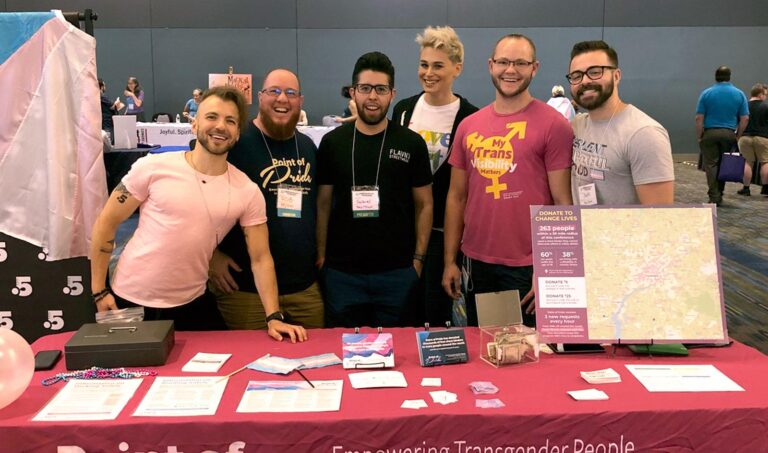Philadelphia Trans Wellness Conference Cancelled Amid Rising Political Strife
This year’s Philadelphia Trans Wellness Conference, a pivotal annual gathering dedicated to the health and empowerment of transgender individuals, has been unexpectedly called off. Organizers attribute the cancellation to mounting political pressures and an increasingly hostile environment, which have compromised the ability to host a secure and supportive event. This decision represents a significant blow to a community that has historically depended on the conference for vital resources, advocacy, and connection.
Several critical factors influenced this outcome, including:
- Legislative challenges: The introduction of restrictive bills targeting transgender rights within Pennsylvania’s state legislature.
- Heightened public backlash: Coordinated social media campaigns aimed at undermining the event’s credibility.
- Safety concerns: Escalating threats and protests that raised serious security issues for attendees.
| Contributing Factor | Effect | Current Situation |
|---|---|---|
| Political Legislation | Declining public endorsement | Ongoing |
| Media and Social Media Pressure | Increasingly negative portrayal | Escalating |
| Security Threats | Compromised event safety | Critical |
Consequences for Philadelphia’s LGBTQ+ Community and Advocacy Networks
The abrupt cancellation has left a void in Philadelphia’s LGBTQ+ landscape, particularly impacting transgender individuals who viewed the conference as a rare sanctuary for open dialogue, healthcare access, and community solidarity. This loss is especially profound for transgender youth and marginalized groups who rely on such events to combat isolation and gain empowerment. Local advocacy organizations warn that this disruption could stall progress in ongoing campaigns and diminish the visibility of transgender issues amid a climate of increasing political hostility.
Challenges now facing community groups include:
- Reduced public platforms for transgender advocacy and education
- Fewer opportunities to build coalitions across diverse LGBTQ+ sectors
- Difficulty mobilizing support in the face of intensifying legislative opposition
In response, many organizations are pivoting toward decentralized, smaller-scale events and expanding virtual programming to maintain engagement and service delivery. Despite these efforts, logistical and funding limitations pose ongoing obstacles. Below is an overview of key local groups affected and their adaptive strategies:
| Organization | Focus Area | Adaptation Strategy |
|---|---|---|
| Trans Philly Network | Access to Healthcare | Hosting virtual health clinics and educational webinars |
| Rainbow Action PA | Legal Rights Advocacy | Grassroots mobilization and policy campaigns |
| Queer Youth Philadelphia | Youth Empowerment | Developing online peer support communities |
Examining the Political Climate Impacting Transgender Rights Events
The cancellation of this key conference reflects a nationwide trend where political polarization increasingly threatens transgender rights events. Across the U.S., organizers confront growing legislative restrictions, public opposition, and funding challenges that jeopardize the feasibility of such gatherings. The politicization of transgender healthcare and rights has led to heightened protests and security concerns, forcing many events to be postponed or cancelled to protect participants.
Several persistent issues exacerbate these tensions:
- Legislative barriers: A surge in laws limiting transgender healthcare and participation in public life.
- Polarized public opinion: Divisive rhetoric fueling protests and negative media attention.
- Safety risks: Increasing threats necessitating costly security measures.
- Funding instability: Withdrawal of sponsorships due to political pressure.
| Issue | Effect on Events | Illustrative Examples |
|---|---|---|
| Restrictive Legislation | Limits access to gender-affirming care and event participation | State bans on transgender healthcare for minors |
| Public Protests | Disrupts event planning and attendance | Counterprotests at LGBTQ+ rallies |
| Funding Withdrawals | Reduces available resources for events | Corporate sponsors pulling support |
| Security Concerns | Increases operational costs and risks | Hiring private security firms |
Strategies for Sustaining Trans Advocacy Amid Political Challenges
To withstand the growing political headwinds, transgender advocacy organizations must embrace adaptive and resilient approaches. Creating decentralized networks that span multiple regions can mitigate the impact of localized opposition, ensuring ongoing access to support and resources. Virtual events and online platforms have become essential tools, offering safe and inclusive spaces for education, activism, and community building without geographic constraints.
Building coalitions with broader social justice movements can also strengthen advocacy efforts by uniting diverse voices and increasing political leverage. Below are practical recommendations for advocates navigating this complex landscape:
- Foster cross-movement partnerships to enhance political influence and resource sharing.
- Leverage multimedia storytelling to humanize transgender experiences and combat misinformation.
- Develop flexible funding models that can adapt to shifting political and economic conditions.
- Invest in grassroots leadership development to empower emerging advocates across communities.
| Challenge | Recommended Approach |
|---|---|
| Legislative Barriers | Form legal advocacy coalitions and monitor policy changes |
| Event Disruptions | Host virtual conferences and regional meet-ups |
| Safety Concerns | Implement secure communication tools and peer support systems |
| Funding Volatility | Diversify fundraising efforts and pursue grant partnerships |
Conclusion: Navigating a Challenging Future for Trans Wellness Initiatives
The cancellation of the Philadelphia Trans Wellness Conference highlights the escalating difficulties faced by transgender-focused events amid a fraught political environment. As organizers and communities adapt to these challenges, the loss of such critical platforms raises urgent questions about sustaining visibility, support, and advocacy for transgender health and rights. Moving forward, fostering inclusive dialogue and enacting protective policies will be essential to ensure that vital community gatherings can continue to thrive without interruption.








